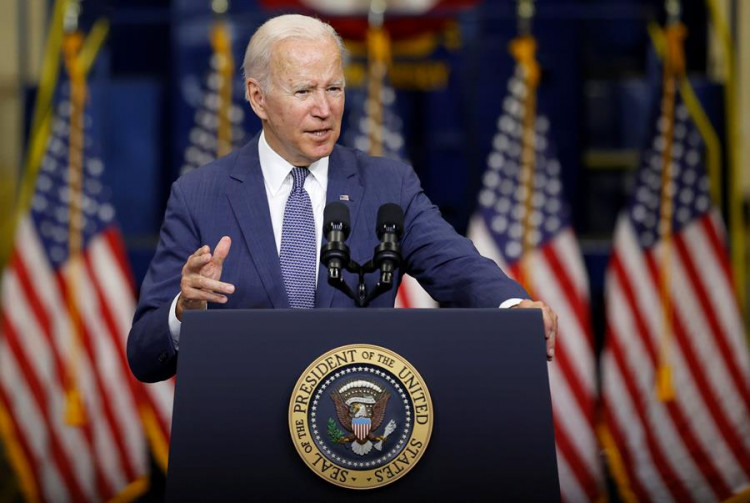In a recent interview with Time magazine, U.S. President Joe Biden indicated that he has not ruled out the possibility of using American military force to defend Taiwan in the event of a Chinese invasion. This strong stance reflects the ongoing tension between the U.S. and China over Taiwan, a self-ruled democratic island that Beijing considers a breakaway province.
"Not ruling out using U.S. military force. There's a distinction between deploying on the ground, air power and naval power," Biden said during the interview, conducted at the White House on May 28. This comment underscores the complexity of potential military engagements and the various options available to the U.S.
Biden also clarified that he has communicated to Chinese President Xi Jinping that while the United States does not seek independence for Taiwan, it remains committed to supporting Taiwan's defense capabilities. "If China tries to change the status quo unilaterally, we're continuing to supply capacity to Taiwan," he stated. "We've been in consultation with our allies in the region."
The issue of Taiwan remains a major source of contention between the U.S. and China, despite efforts by both Biden and Xi to ease geopolitical tensions. U.S. Central Intelligence Agency Director William Burns revealed that Xi has instructed his military to be ready to invade Taiwan by 2027, highlighting the urgency of the situation.
Following the inauguration of Taiwan's new President, Lai Ching-te, who is viewed by Beijing as a "separatist," China conducted military drills around Taiwan as a "punishment" for what it perceives as separatist actions. These drills came shortly after Lai called on Beijing to stop intimidating Taiwan.
The U.S. maintains unofficial relations with Taiwan and provides it with arms to ensure it can defend itself. Addressing China's economic status, Biden remarked, "Where is it coming from? Where is it going to grow? You've got an economy that's on the brink there. The idea that their economy is booming? Give me a break." He also criticized China's Belt and Road Initiative, calling it a "nuisance graveyard initiative."
Biden emphasized the importance of expanding cooperation with European and Asian allies and strengthening relations with developing countries to maintain U.S. leadership in the international community. During a trilateral ministerial meeting in Singapore, attended by U.S. Secretary of Defense Lloyd J. Austin, Japan's Minister of Defense Kihara Minoru, and South Korea's Minister of National Defence Shin Won-sik, the officials reaffirmed their nations' position on Taiwan, calling for a peaceful resolution to cross-strait issues.
Austin also met with his Chinese counterpart Dong Jun on the sidelines of the Shangri-La Dialogue, marking the first in-person talks between the defense chiefs of the two countries since November 2022. Austin expressed concerns about China's "provocative" military activities near Taiwan.
Meanwhile, the U.S. House Appropriations Committee introduced a bill to provide $500 million in foreign military financing for Taiwan to strengthen deterrence across the Taiwan Strait. The Fiscal Year 2025 State, Foreign Operations, and Related Programs Bill also seeks to offer Taiwan up to $2 billion in loans and loan guarantees for the same purpose.
This isn't the first time Biden has broached the subject of using U.S. military force to defend Taiwan, a stance that has consistently angered Beijing. China's Foreign Ministry spokeswoman Mao Ning responded to Biden's latest comments, stating, "No pressure or threat will erode the determination, will and ability of the Chinese government and people to defend China's sovereignty and territorial integrity."
Reiterating that Taiwan is "an inalienable part of China," Mao urged Washington to "stop sending any wrong signals to 'Taiwan independence' separatist forces." The delicate balance of strategic ambiguity the U.S. has maintained over Taiwan is being tested as China strengthens its military capabilities and rhetoric.
Biden's remarks come at a time when fears of a war over Taiwan have risen, with some U.S. military officers suggesting that Beijing could be ready to invade Taiwan by 2027. Despite these tensions, Biden continues to stress the importance of U.S. alliances and the need for a stable and strategic approach to international relations, particularly in Asia.






